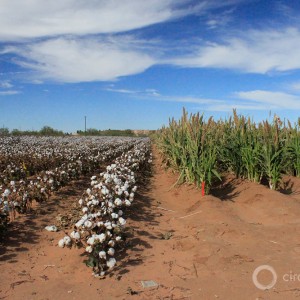Federal Water Tap, April 1: Saltier Water for Some Coastal Cities
As oceans climb because of climate change, utilities that pull drinking water from rivers near the coast could see their supplies getting saltier, according to new research from the U.S. Geological Survey. The USGS used climate models and observational data to look at the interaction between river flows, sea-level rise and tidal changes along the Georgia and South Carolina coasts. These three factors produce tongues of salty water that push inland, against the flow of the river.
The researchers found that rivers are most sensitive to changes in sea-level rise. A 30-centimeter (1-foot) increase in sea-level doubles the number of times that salt levels in municipal supplies would require extra treatment, compared to the 1995-2008 period. A 61-centimeter (2-foot) increase triples the frequency of saltwater intrusion.
Fracking Board
The U.S. Environmental Protection Agency announced the members of an advisory board that will review the agency’s report on hydraulic fracturing’s effect on drinking water supplies. The 31-member board is drawn primarily from universities, but private sector researchers and industry representatives also have a seat.
Ballast Water
The EPA also announced new rules for the shipping industry, aimed at reducing the spread of aquatic invasive species. Ships longer than 24 meters (79 feet) must treat their ballast water with ultraviolet light or chemicals before dumping the water, the Associated Press reports. Ballast water helps to balance a ship’s load and it is an easy way for species to hitch a ride from one water body to another. The new rules do not apply to ships that do not stray outside the Great Lakes.
Sorghum on the Rise
Drought is not all-powerful. People can and do respond. Farmers in the plains states are doing so by planting more sorghum, a grain that handles dry conditions better than corn and requires less water, according to a U.S. Department of Agriculture report. The Prospective Plantings report is a national survey that asks farmers what they plan to plant, as of March 1. Sorghum acreage is forecasted to rise by 22 percent this year.
Detroit Water
Last week a U.S. district judge ended the federal government’s oversight of the Detroit Water and Sewerage Department, the Detroit Free Press reports. Clean Water Act violations in 1977 led to federal supervision. Control of the department now shifts to the city’s emergency manager, who was appointed by the state last month. The department is attempting to restructure itself as an independent entity.
Federal Court Strikes Down EPA Rules
A federal appeals court threw out two EPA rules on wastewater treatment, the Associated Press reports. A rule guiding how treatment plants dilute wastewater before discharge was thrown out because the EPA did not go through proper procedures for public comment. The three-judge panel ruled that the EPA also violated proper procedures when setting the second disputed rule, on handling stormwater during heavy rains.
Federal Water Tap is a weekly digest spotting trends in U.S. government water policy. To get more water news, follow Circle of Blue on Twitter and sign up for our newsletter.
Brett writes about agriculture, energy, infrastructure, and the politics and economics of water in the United States. He also writes the Federal Water Tap, Circle of Blue’s weekly digest of U.S. government water news. He is the winner of two Society of Environmental Journalists reporting awards, one of the top honors in American environmental journalism: first place for explanatory reporting for a series on septic system pollution in the United States(2016) and third place for beat reporting in a small market (2014). He received the Sierra Club’s Distinguished Service Award in 2018. Brett lives in Seattle, where he hikes the mountains and bakes pies. Contact Brett Walton




Leave a Reply
Want to join the discussion?Feel free to contribute!